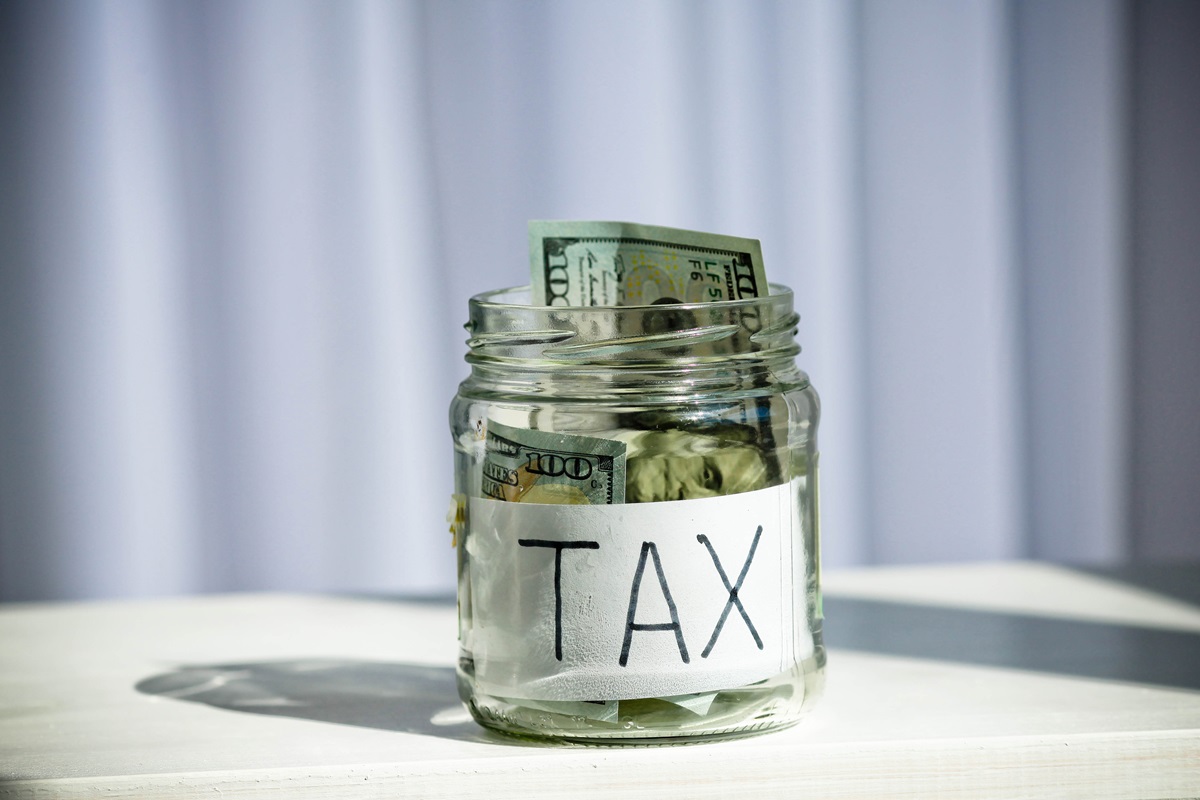When people talk about “countries with no income tax,” the idea sounds almost too good to be true.
Imagine earning your salary, freelance fees, or investment income without the government taking a cut.
For digital nomads, entrepreneurs, and globally mobile families, that kind of freedom can feel like the ultimate financial advantage. But before packing your bags for Monaco or hopping on a flight to Dubai, it’s worth understanding what “no income tax” really means in practice.
Zero-tax jurisdictions don’t run on thin air.
They usually make up for lost income tax revenue through other channels—think high consumption taxes, customs duties, or mandatory government fees. Some also rely heavily on tourism, financial services, or natural resources to keep the system afloat.
That means while you might not file a personal income tax return, you’ll still need to plan for costs that show up in different forms.
This guide takes you beyond the glossy headlines and into the details. You’ll find a complete list of countries that levy no personal income tax, along with practical insights into residency rules, cost of living, digital infrastructure, and lifestyle trade-offs.
We’ll also explore alternatives—territorial systems and low-tax regimes—that can work just as well for nomads who want flexibility without surprises.
Whether you’re a remote worker chasing sunshine, a crypto investor seeking tax efficiency, or a family looking for a safe, stable base, this article will help you understand the real options available in 2026.
Gulf States With No Income Tax
United Arab Emirates (UAE)
The UAE has become the poster child for tax-free living, especially Dubai.
Individuals pay no personal income tax, no capital gains tax, and no inheritance tax. Instead, the country funds itself through oil revenues, VAT (5%), and corporate tax on businesses above certain profit thresholds.
Expats can get long-term visas through employment, business, or the popular Golden Visa scheme.
For digital nomads, Dubai’s strong internet, co-working spaces, and global flight connections make it one of the easiest tax-free countries to live in.
Qatar
Qatar also levies no personal income tax and offers a high standard of living powered by gas revenues.
The government raises money through corporate taxes, customs duties, and fees rather than taxing residents’ salaries. Doha has modern infrastructure, but unlike Dubai, Qatar can feel more conservative socially.
Residency is usually tied to employment or sponsorship, though investment options exist.
Saudi Arabia
Saudi Arabia abolished personal income tax decades ago, replacing it with zakat (a religious wealth tax) and oil revenue.
Foreign workers generally do not pay tax on employment income, though expat dependent fees (previously levied) were suspended in 2024. The Kingdom is undergoing rapid transformation under “Vision 2030,” with investment opportunities and megacity projects.
That said, cultural restrictions and bureaucratic rules make it less straightforward for digital nomads compared to the UAE.
Kuwait
Kuwait charges no personal income tax on salaries or wages, though foreign companies pay corporate tax.
Most residents are expats working in energy or finance. While the cost of living can be high, healthcare and subsidies soften the blow for long-term residents.
Kuwait is less developed as a nomad hub compared to Dubai or Doha but remains a genuine zero-tax jurisdiction.
Oman
Oman does not impose personal income tax, and it has a more relaxed lifestyle compared to its Gulf neighbours. The country relies on oil, VAT (5%), and customs duties for revenue. While not a global financial hub like the UAE, Oman appeals to expats who want a quieter tax-free life with natural beauty, safety, and lower living costs.
Caribbean & Atlantic No-Income-Tax States
Bahamas
The Bahamas is one of the most well-known zero-tax jurisdictions.
Residents pay no personal income, capital gains, or inheritance tax. Instead, the government raises revenue through VAT (10%), customs duties, and tourism levies.
The Bahamas offers permanent residency routes via real estate investment, making it attractive for high-net-worth individuals. However, the cost of living is high, and reliable infrastructure varies outside Nassau and Paradise Island.
Bermuda
Bermuda imposes no personal income tax, but residents do face steep payroll taxes and a high cost of living.
The island is a hub for insurance and reinsurance, with strong financial services but limited options for digital nomads who aren’t employed locally.
Internet and infrastructure are excellent, but it’s one of the most expensive places in the world to maintain residency.
Cayman Islands
The Cayman Islands offer a true tax-neutral environment with no personal income, capital gains, or inheritance tax.
Revenue comes from import duties, tourism, and financial services licensing fees.
For expats, the islands are attractive for their English-speaking population, strong banking sector, and Caribbean lifestyle.
Residency usually requires significant investment, so it appeals more to investors than casual nomads.
Turks and Caicos
Like its neighbours, Turks and Caicos has no personal income tax and no capital gains tax.
Government funds are raised through customs duties, tourism, and service fees.
With pristine beaches and proximity to the U.S., it’s a popular second-home destination.
Infrastructure is decent, but the small size of the economy means opportunities for work outside tourism and real estate are limited.
European & Pacific Outliers
Monaco
Monaco is Europe’s most famous no-income-tax state, attracting high-net-worth individuals with its luxury lifestyle and proximity to France and Italy.
Residents pay no personal income tax, but they face high costs of living and strict residency requirements, such as maintaining a local address and demonstrating financial means.
Corporate taxes apply in limited cases, and VAT (20%) is collected under France’s system.
The Principality is highly regulated and enjoys a spotless reputation compared to many offshore havens.
Vanuatu
Vanuatu, in the South Pacific, charges no personal income tax, no capital gains tax, and no inheritance tax.
The government instead raises revenue from VAT (15%), import duties, and its Citizenship by Investment (CBI) programme.
While Vanuatu is attractive on paper, its infrastructure and connectivity are limited compared to hubs like Dubai or Nassau.
It suits investors seeking a legal tax-neutral base more than remote workers who need reliable digital infrastructure.
How Zero-Tax Systems Work
At first glance, countries with no personal income tax seem like a financial paradise.
But in reality, these jurisdictions rely on a patchwork of alternative revenue streams to balance their budgets. Most of them fall into one of three models:
- Resource-funded states like Qatar, Saudi Arabia, and the UAE finance their governments with oil and gas exports. This allows them to avoid taxing residents directly, while still offering modern infrastructure and services.
- Tourism and offshore hubs such as the Bahamas or the Cayman Islands generate income from tourism, real estate transactions, financial services, and import duties. Taxes show up indirectly through VAT, customs charges, or high service fees.
- Niche or prestige economies like Monaco or Vanuatu use exclusivity and strategic positioning to attract wealthy residents and investors, offsetting the lack of income tax with luxury pricing, high costs of living, and investment-driven residency schemes.
For individuals, living in a zero-tax jurisdiction does not mean escaping all taxes—it means shifting how taxes appear. Instead of paying an annual tax return on income, you’re more likely to encounter high import duties on goods, elevated VAT, or mandatory government fees tied to residency.
And because many of these countries are under OECD and EU scrutiny, compliance and proof of residency are just as important as the tax rate itself.
No Income Tax Countries Table
Residency, Compliance & Risks
Establishing Residency
To take advantage of a zero-tax system, you must be legally resident in the country. That usually means:
- Holding a residence permit (via work, investment, or sponsorship).
- Renting or owning a local home.
- In some cases, spending a minimum number of days per year there.
Skipping these steps leaves you exposed to your old country’s tax rules, since you may still count as resident there.
International Compliance
Even in no-tax countries, you’re not invisible. Most are part of the OECD’s Common Reporting Standard (CRS), so local banks share account information with foreign tax authorities.
Also, double tax treaties can override your plans — if you haven’t cut ties properly, your home country may still claim taxing rights.
Substance Requirements
More and more, tax-free states ask residents to show real presence. That can include:
- Proof of a rental contract or home ownership.
- Utility bills in your name.
- Enrolling children in local schools.
These measures are designed to weed out “paper residents” who don’t actually live in the country.
Reputation & Risk
Finally, not all no-tax jurisdictions are viewed equally.
- Mainstream hubs like the UAE or Monaco enjoy strong reputations and open banking.
- Offshore islands sometimes raise red flags, leading to tougher bank checks or visa scrutiny elsewhere.
Careful planning, professional advice, and full documentation help protect against reputational or legal risks.
Common Mistakes to Avoid When Establishing Residency in a Zero-Tax Jurisdiction
Strategic Alternatives to No-Tax Countries
Not everyone can (or should) move to a country with zero personal income tax.
Some are too expensive, some too restrictive, and others simply don’t fit a digital nomad or family lifestyle.
Fortunately, there are strategic alternatives that still offer very low effective tax rates, often with fewer hurdles.
Territorial Tax Systems
Countries like Panama, Costa Rica, and Malaysia use a territorial model: they only tax income earned inside their borders.
If your work or business profits come from abroad, they’re typically exempt.
For remote workers and global freelancers, this can be almost as beneficial as living in a no-tax state — but with more lifestyle options.
Low-Flat-Tax Jurisdictions
Some countries don’t eliminate income tax, but they keep rates so low they’re attractive compared to Western norms. Examples include:
- Bulgaria (10% flat tax on personal income)
- Romania (10% flat rate, with some exemptions)
- Hungary (15% flat rate, still competitive within the EU)
These systems often come with the benefit of EU residency, easier banking, and stronger reputations compared to offshore islands.
Special Expat Regimes
A handful of countries offer temporary tax holidays or special expat schemes:
- Italy’s Lump-Sum Regime: wealthy foreigners can pay a fixed €100,000 per year instead of regular income tax.
- Greece’s Non-Dom Program: flat €100,000 annual levy for high-net-worth individuals.
- Portugal’s NHR (Non-Habitual Residency): until recently, offered reduced tax rates for expats; currently being phased out but still relevant historically.
Digital Nomad Visas in Low-Tax Countries
Another alternative is pairing digital nomad visas with favourable tax treatment.
For example, Costa Rica’s nomad visa exempts foreign income, and UAE’s remote work visa lets you live in a no-tax hub without needing a full Golden Visa.
Comparing Strategic Alternatives
How to Choose the Right Country
With so many tax-friendly options on the map, the challenge isn’t just knowing which countries don’t levy income tax — it’s figuring out which one works best for your lifestyle, budget, and long-term goals.
The right choice depends on several factors:
- Residency Requirements: Some places (like Monaco) demand physical presence and proof of substantial means, while others (like the UAE) allow you to maintain residency with only a few visits each year.
- Cost of Living: A beach paradise such as the Bahamas may save you on taxes, but high food and housing prices can quickly eat into the benefit.
- Infrastructure & Connectivity: Digital nomads need strong internet, co-working spaces, and easy travel links. That narrows the list compared to investors who simply want a tax base.
- Reputation & Compliance: Banking, visas, and international perception matter. Well-regulated jurisdictions like Monaco or the UAE carry more weight than lightly regulated island havens.
- Long-Term Security: Consider not just today’s tax laws, but how stable they are. Some special expat regimes or visa categories are political targets and could change quickly.
Cost of Living
Taxes aren’t the only cost to consider. In no-income-tax countries, day-to-day living can range from surprisingly affordable to eye-wateringly expensive.
Here’s a quick sense of what to expect:
- Gulf States (UAE, Qatar, Oman, Kuwait, Saudi Arabia):Fuel is cheap, and everyday goods can be reasonable, but rent in Dubai, Doha, or Riyadh often takes a big slice of income. Oman stands out as the more affordable, laid-back option.
- Caribbean & Atlantic (Bahamas, Bermuda, Cayman Islands, Turks & Caicos):Almost everything is imported, so groceries and utilities cost well above global averages. Bermuda is among the most expensive places to live worldwide, while the Bahamas and Cayman Islands balance high costs with better lifestyle perks.
- European Prestige (Monaco):Ultra-luxury pricing across the board — property, dining, even groceries. Suitable only for those with significant wealth who value security and exclusivity.
- Pacific Outlier (Vanuatu):Day-to-day expenses are lower than in Monaco or Bermuda, but limited infrastructure and reliance on imports keep costs higher than in nearby Asian countries.
Here’s a closer look at day-to-day living costs in each no-tax country
FAQs
Final Thoughts: Living Tax-Free Comes With Trade-Offs
Moving to a no-income-tax country can sound like a dream — keeping more of what you earn while enjoying life in a sunny Gulf state, a Caribbean island, or even a European enclave like Monaco.
But as the journey through this guide has shown, the reality is more complex.
These jurisdictions rely on other taxes and fees, from high rents and import duties to mandatory insurance or residency costs.
For digital nomads, infrastructure and visa stability are just as important as the absence of income tax.
For families and long-term residents, factors like schools, healthcare, and international banking access often weigh heavier than headline tax rates.
The big takeaway? Zero-tax living isn’t about finding a loophole — it’s about choosing a country whose lifestyle, compliance framework, and long-term stability fit your goals.
For some, that means embracing Dubai’s fast-paced global hub, while for others, it may be the slower pace of Vanuatu or the exclusivity of Monaco.
If you’re considering making the move, take time to map out the full picture: cost of living, residency requirements, financial compliance, and the hidden rules that don’t show up in glossy brochures.
Tax freedom is possible, but it works best when paired with careful planning and a clear-eyed look at the trade-offs.
 Portugal
Portugal Spain
Spain Italy
Italy Greece
Greece Grenada Citizenship by Investment
Grenada Citizenship by Investment









